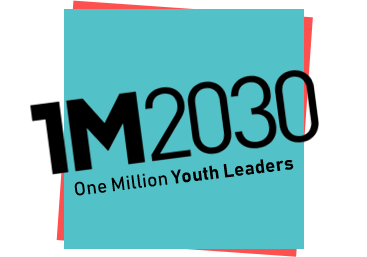1M2030 Story #14: Returning Cultural Heritage
Hi! I am Evan Binkley and I am one in a million. This my story.
Museums play a fundamental role in both preserving and interpreting the past and present.
Their exhibitions and programs contribute to a global network of engaged learning and enhanced understanding. However, at the same time that museums unite, their collections often contain objects acquired as a result of violence and destruction. Such is the case particularly for works obtained during the colonization of Africa. Estimates project that close to ninety percent of African material culture currently exists outside of the continent. In response to this disparity, requests for the return or repatriation of objects back to African nations have continued to grow.
Yet, relatively few objects have been returned.
I am motivated by the challenges of a career dedicated to the return of cultural heritage. As nations around the world confront the reality of racism and oppression through the history of slavery and colonialism, museums should strive to do this same. To this end, intergovernmental organizations and partnerships represent a crucial step forward. The United Nations Educational, Scientific and Cultural Organization (UNESCO), for instance, has made significant progress in the effort to end the contemporary illicit market for cultural property. Similar standards need to apply to objects in museum collections that were collected illegally, regardless of whether they were acquired days or centuries ago.
Above all, museums must be more transparent with their visitors and the communities in which they are embedded.
The pressing need to repatriate objects to its place of origin does not mean that all or even most objects in institutions should be returned. Each work should be evaluated according to its individual background. What such an effort demands is, not less, but more support for museums to better research, digitize, and publicize the history of their collections. Sustained initiatives of this nature are most important for sacred ceremonial items or funeral remains. In response, museums must better involve cultural stakeholders and community representatives.
Museums should be viewed not as static collections but living institutions which educate and inspire all visitors.
In the coming years, I am hopeful that international collaboration will generate progress in the fight to protect and restore cultural heritage. Further engagement of museum institutions globally will serve a catalyst for nations to more extensively examine and redress legacies of discrimination. In addition, actionable commitments to support and train the next generation of museum leaders are crucial.
Through paid internships, exchange programs, mentorship opportunities, museums can become better equipped to include a diversity of voices. I am committed to assisting in these efforts to ensure the future of our shared past.
Disclaimer: Any views or opinions represented in these articles are personal and belong solely to the author. The content provided by these authors do not necessarily reflect the opinions and beliefs and viewpoints of 1M2030, or its affiliates.
1M2030 Stories
1M2030 Stories is a weekly feature of a young leader and their unique story.
If you think you have a compelling story to tell, we invite you to send us your article to info@1m2030.org.


